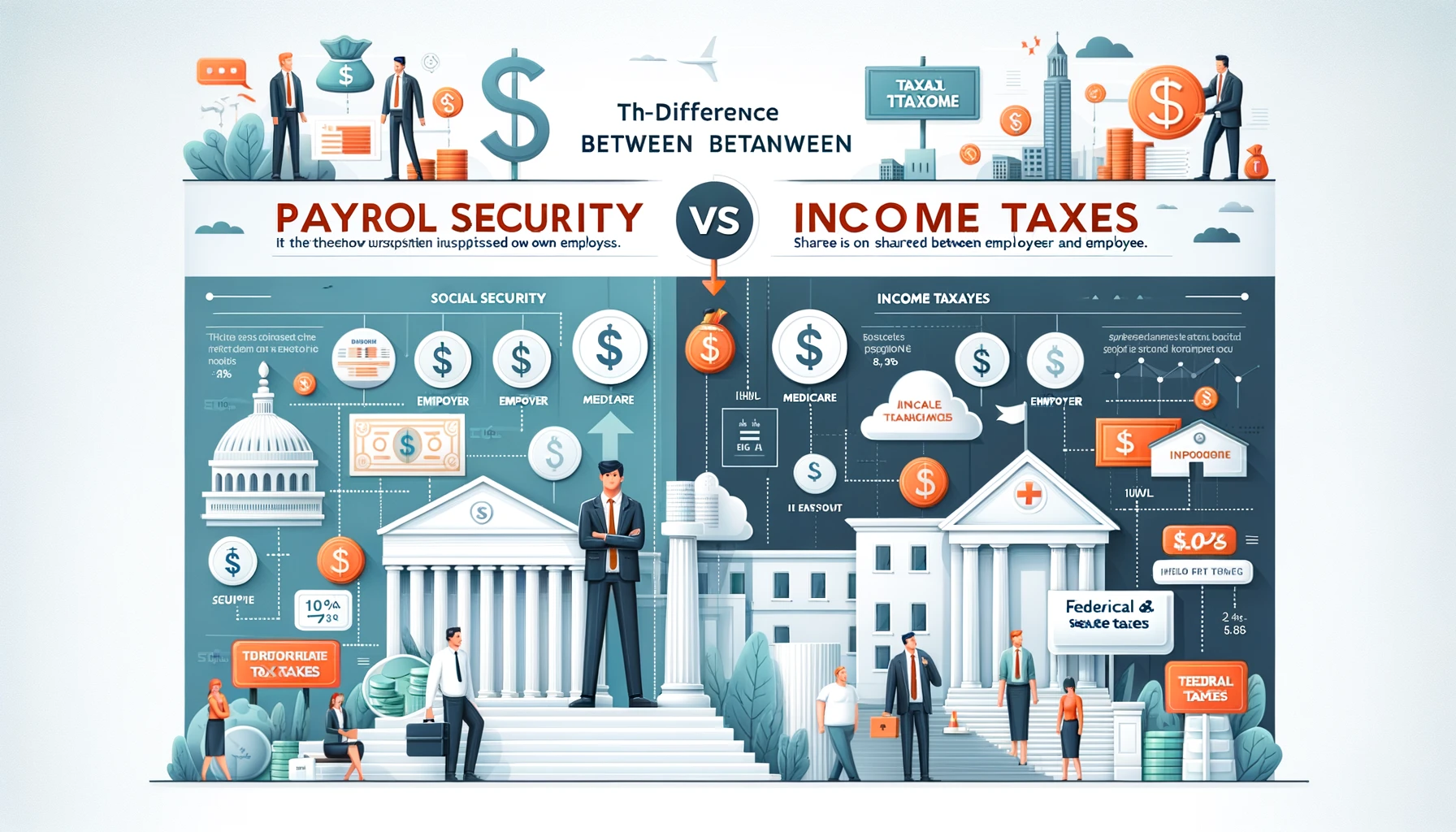When it comes to taxes, confusion often arises about the terms used and their implications for both individuals and businesses. Specifically, the difference between payroll and income taxes is a topic that frequently perplexes taxpayers. These two types of taxes are crucial components of the United States tax system, affecting employees, employers, and self-employed individuals in distinct ways. This article aims to demystify these terms, highlighting the unique characteristics and obligations each tax type entails.
What Are Payroll Taxes?
Payroll taxes are taxes that an employer withholds and pays on behalf of their employees, based on the wages and salaries the employees earn. These taxes are used to fund specific social insurance programs. There are two main types of payroll taxes:
- Social Security Tax: This tax funds the Social Security program, which provides benefits for retirees, disabled persons, and survivors of deceased workers.
- Medicare Tax: This tax contributes to the Medicare program, offering health insurance to individuals aged 65 and older, and to certain younger people with disabilities.
Employers and employees share the responsibility for these taxes, with both parties paying half of the total amounts due. For self-employed individuals, they cover both the employer and employee portions of these taxes, which is referred to as the self-employment tax.
What Are Income Taxes?
Income taxes, on the other hand, are taxes levied on the income of individuals, corporations, and other legal entities. These taxes are progressive, meaning the tax rate increases as the taxable amount increases. For individuals, income tax is calculated on their total income, including wages, salaries, interest, dividends, and other sources. The key distinction here is that income taxes are paid directly by the taxpayer, and the amount is determined by the individual’s total income and filing status.
Key Differences Between Payroll and Income Taxes
Purpose and Use
- Payroll Taxes fund specific social programs (Social Security and Medicare).
- Income Taxes are used for general government funding, including education, defense, and infrastructure.
Tax Rates and Calculation
- Payroll Taxes have fixed rates for Social Security and Medicare.
- Income Taxes use a progressive rate system, where rates increase with income.
Who Pays?
- Payroll Taxes: Shared equally by employers and employees; self-employed individuals pay both portions.
- Income Taxes: Paid by individuals and entities on their total income, with rates varying by income level and filing status.
Collection Method
- Payroll Taxes are withheld by the employer from the employee’s paycheck.
- Income Taxes are paid by taxpayers, either through withholding or estimated tax payments.
Understanding the difference between payroll and income tax is crucial for financial planning and compliance. While payroll taxes are dedicated to funding specific social insurance programs, income taxes contribute to the broader spectrum of government spending. Both play vital roles in the economic structure, affecting individuals and businesses in various ways.
For further clarification or assistance with tax-related queries, consulting a tax professional is always recommended. Knowing the intricacies of these taxes can help ensure compliance and optimize tax strategies for individuals and businesses alike. For auto tax returrns from your financial documents consider using our tools.

Leave a Reply